Florida-born Judy Canova occupied a unique niche at Republic Pictures, where, known as "Queen of the Hillbillies" and "The Ozark Nightingale," she starred in a string of eccentric comedies with titles like Puddin' Head, Sis Hopkins, The WAC from Walla Walla, and Singin' in the Corn. As her biography on TCM.com describes her, Canova played the same basic character, in film and on radio and television, "throughout much of her career: a man-chaser in pigtails, dressed in oversized ankle boots, bobby sox, short plain skirt, checkered blouse and straw hat who was given to produce an 'ear-bursting yodel."
Canova may have played decade-long variations of her rambunctious "Judy" character, but she was also a skillful, appealing vocalist and physical comedienne who could adapt herself to multiple genres....even a wartime backstage musical complete with drag-extravaganza finale. In 1942, she appeared on loan to Paramount in True to the Army (directed by Arthur S. Rogell), for which Bradford Ropes co-wrote the screenplay with Art Arthur, working with adaptors Edmund L. Hartmann and Val Burton, as well as composer Harold Spina and lyricist Frank Loesser (this was eight years before Broadway's Guys and Dolls--and it's a fun discovery that the nightclub in True to the Army is called "the Hot House"). The team based the screenplay upon Edward Hope's novel She Loves Me Not, which Howard Lindsay transformed into a hit 1933 play about a cabaret showgirl who, witnessing a mob murder, disguises herself as a male student at Princeton. The play had previously been adapted into a 1934 Paramount film starring Miriam Hopkins as the on-the-run dancer.
In True to the Army, Ropes and his collaborators retained the gangster-dodging gender-bending of the source Lindsay play. But they moved the action to the fictional Fort Bray army base, where Canova's Daisy Hawkins, a tightrope walker who loves to sing about "The Spangles on My Tights," witnesses a mob hit at the circus. She seeks refuge at the strictly women-forbidden Fort Bray, where her boyfriend, Private J. Wethersby "Pinky" Fothergill (Jerry Colonna), trains carrier pigeons. Pinky is also rehearsing magic tricks in the morale-boosting army revue, Swing in Line, directed by "Broadway Bill" Chandler (Allen Jones): "the bad boy of the musical comedy stage." When Daisy arrives in her circus garb at Fort Bray, she's mistaken for one of the GIs-turned-female impersonators in the show. "That one can't even walk like a woman," Chandler exclaims at her audition. But he's soon dazzled by Daisy's charisma and coloratura yodel.
Victor/Victoria-style hijinks ensue. When Chandler learns Daisy is "first a girl," he and Pinky devise a disguise: she'll cut her hair, dress in army uniform, and impersonate a soldier named Private Omstuck ("I'm stuck," Daisy drawls in frustration, when asked for her alter ego's name). As Daisy/Omstuck runs between rehearsal, out-sharp-shooting her fellow soldiers on the firing range, and lying low from the mob, Chandler pursues a romance with Vicki Marlow (Ann Miller), the defiant tap-dancing daughter of Fort Bray's commanding officer. "You're sable and silk, top drawer, Phi Beta Tappa," Chandler gushes to Vicki, who, as played by Miller, taps up a storm in two numbers: a patriotic tap reveille and "Jitterbug Lullaby."
Victor/Victoria-style hijinks ensue. When Chandler learns Daisy is "first a girl," he and Pinky devise a disguise: she'll cut her hair, dress in army uniform, and impersonate a soldier named Private Omstuck ("I'm stuck," Daisy drawls in frustration, when asked for her alter ego's name). As Daisy/Omstuck runs between rehearsal, out-sharp-shooting her fellow soldiers on the firing range, and lying low from the mob, Chandler pursues a romance with Vicki Marlow (Ann Miller), the defiant tap-dancing daughter of Fort Bray's commanding officer. "You're sable and silk, top drawer, Phi Beta Tappa," Chandler gushes to Vicki, who, as played by Miller, taps up a storm in two numbers: a patriotic tap reveille and "Jitterbug Lullaby."
Miller and Jones provide the requisite core of hetero-romance in the film. But just as Ropes had queered the Western genre with 1940's Melody Ranch (as I wrote about in my previous entry), here he fully embraces the potential of both the drag farce (e.g. Charley's Aunt; She Loves Me Not) and the all-male army revue to disrupt gender norms. Canova's film persona, too, invited this kind of subversion of bourgeois femininity: her raucous, freewheeling young mountain women can do anything men can do better, anticipating a line of tomboy heroines like Annie Oakley in Annie Get Your Gun (1946), and the title character of Calamity Jane (1953), starring Doris Day. Ropes also incorporate subtle suggestions of same-sex attraction into the screenplay. In one later scene in True to the Army, Daisy/Private Omstuck's soldier comrades prevail upon her to join them at the Hot House. At first, Daisy is reluctant to dance with Mary Treen's bobby-soxer Mae--but the two get close on the dance floor with a feverish jitterbug (though Mae's attraction to Omstuck dampens when she sees the GI applying powder at the table).
Ropes and his collaborators--writing for the always-risqué Paramount during the era of Rosie the Riveter--may have managed to dance around Hays Code censorship in their dialogue by suggesting Daisy's ultimate stability within heteronormative femininity; her masquerade as Private Omstuck will come to an end and she'll marry Colonna, her faithful pop-eyed "pigeoneer." Yet, first Omstuck will stop the show as the star female female-impersonator of Swing in Line, which climaxes with the eye-popping "Wacky for Khaki:" a drag fashion extravaganza with lyrics by Loesser.
The number is not the only movie army-show drag number of its period, when cross-dressed all-male shows were a staple of WWII military bases. Irving Berlin's This is the Army moved from Broadway in 1942 to a hit film version in 1943. Yet what distinguishes True to the Army is not only the lack of ridicule directed at the female impersonators in the "Wacky for Khaki" number as "men in dresses" (compare this to the "Ladies of the Chorus" number in This is the Army)--it's also the sheer pleasure and ease that the performers exude as they strut and pose in their gowns, dancing with both Canova's khaki-clad Private Omstuck and with the masculine soldiers who serenade her. Canova sings:
I just came to the fashion show to see the latest styles,
To watch the gorgeous models parade around for miles.
In silks and satins and velveteen and wool,
In polka dots and stripes and all that kind of thing,
But I don't see a sample of the very latest fashion
That fills my heart with patriotic passion.
I'm wacky for khaki and tan-brown belts
When I need a soldier, my heart just melts.
I'm one of those gluttons for buttons that shine--
Oh Captain, Captain, Captain, be my valentine.
I'm wacky for khaki, I'll say that twice.
It scratches a little, but it scratches so nice.
Oh, Captain, Captain, Captain, just look or I'll fall.
Cause I'm wacky for khaki, that's all.
Chorus: She's wacky for khaki.
Canova: Not tweed, not serge.
It's khaki, by cracky, that gives me the urge.
The stripes on the shoulders, they set me aflame.
Why sure I'll marry you, Lieutenant, what's your name.
Chorus: She's wacky for khaki.
Canova: I've gone with marines and with sailors in blue.
But don't you worry, I'll be true to Company B.
Chorus: Cause she's wacky for khaki.
Canova: That's me!
The whole delightful number can be viewed in its entirety on YouTube.
The number is not the only movie army-show drag number of its period, when cross-dressed all-male shows were a staple of WWII military bases. Irving Berlin's This is the Army moved from Broadway in 1942 to a hit film version in 1943. Yet what distinguishes True to the Army is not only the lack of ridicule directed at the female impersonators in the "Wacky for Khaki" number as "men in dresses" (compare this to the "Ladies of the Chorus" number in This is the Army)--it's also the sheer pleasure and ease that the performers exude as they strut and pose in their gowns, dancing with both Canova's khaki-clad Private Omstuck and with the masculine soldiers who serenade her. Canova sings:
I just came to the fashion show to see the latest styles,
To watch the gorgeous models parade around for miles.
In silks and satins and velveteen and wool,
In polka dots and stripes and all that kind of thing,
But I don't see a sample of the very latest fashion
That fills my heart with patriotic passion.
I'm wacky for khaki and tan-brown belts
When I need a soldier, my heart just melts.
I'm one of those gluttons for buttons that shine--
Oh Captain, Captain, Captain, be my valentine.
I'm wacky for khaki, I'll say that twice.
It scratches a little, but it scratches so nice.
Oh, Captain, Captain, Captain, just look or I'll fall.
Cause I'm wacky for khaki, that's all.
Chorus: She's wacky for khaki.
Canova: Not tweed, not serge.
It's khaki, by cracky, that gives me the urge.
The stripes on the shoulders, they set me aflame.
Why sure I'll marry you, Lieutenant, what's your name.
Chorus: She's wacky for khaki.
Canova: I've gone with marines and with sailors in blue.
But don't you worry, I'll be true to Company B.
Chorus: Cause she's wacky for khaki.
Canova: That's me!
The whole delightful number can be viewed in its entirety on YouTube.
While not a hidden masterpiece of the movie musical, the out-of-print True to the Army certainly deserves a re-issue and a wider viewership. The film demonstrates once again Ropes's versatility and dexterity with movie musical comedies and, particularly, backstage stories with queer themes and subtexts. In Ropes's expansive world, a cowboy or a captain might be a chorus girl--and those who go "wacky for khaki" might also go wild over the spangles on their tights.
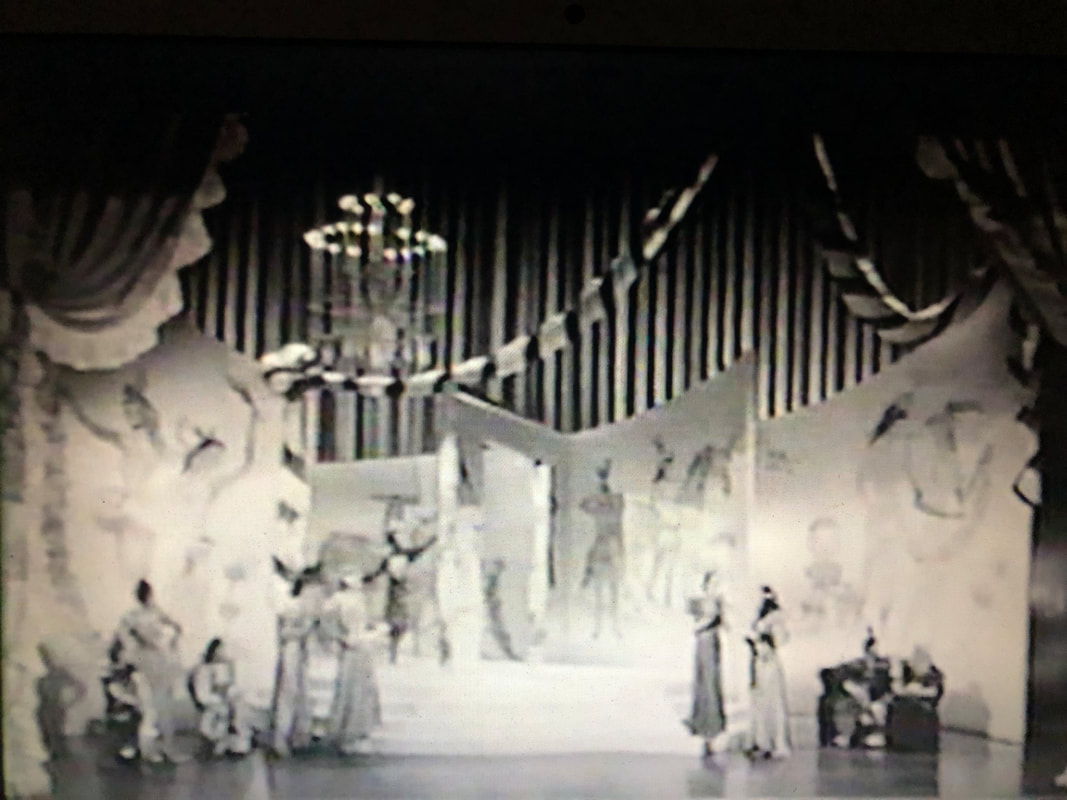
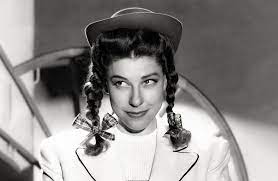
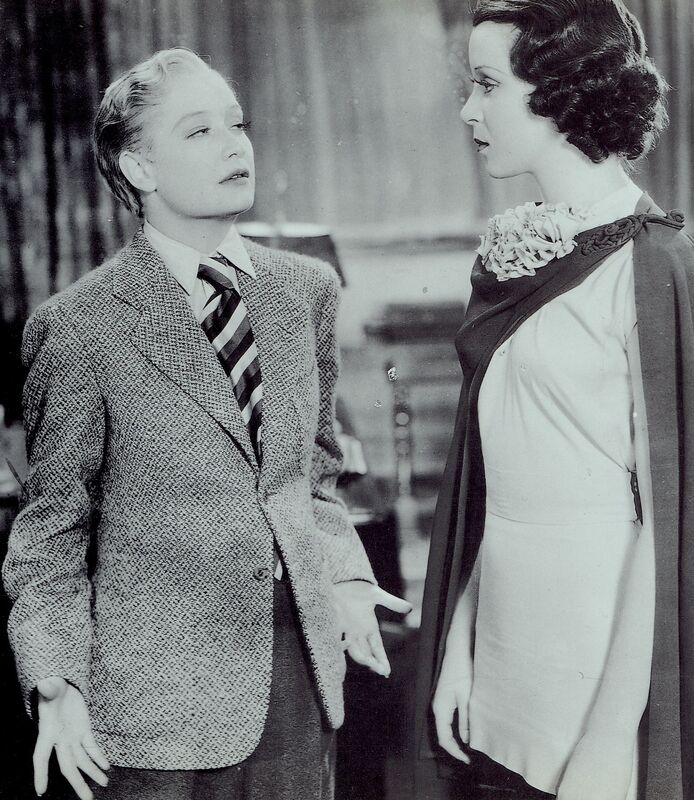
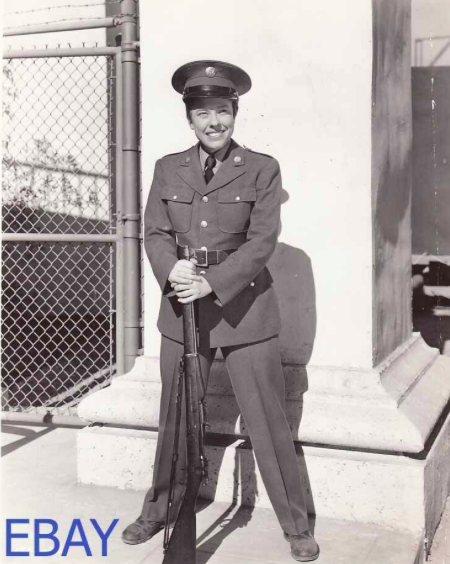
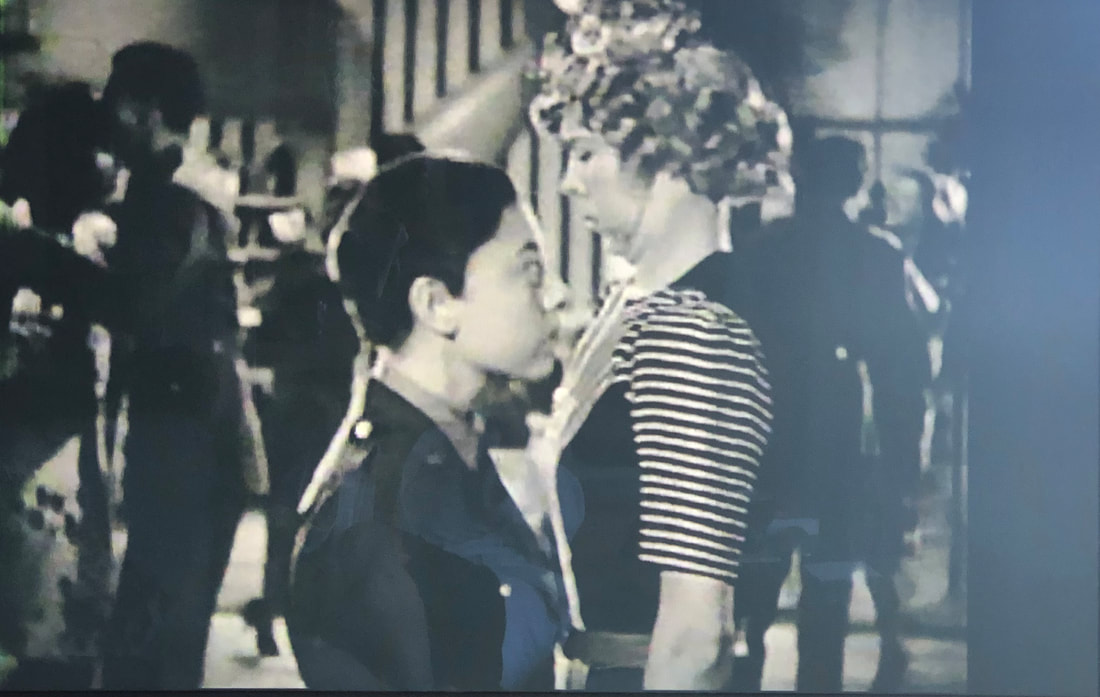
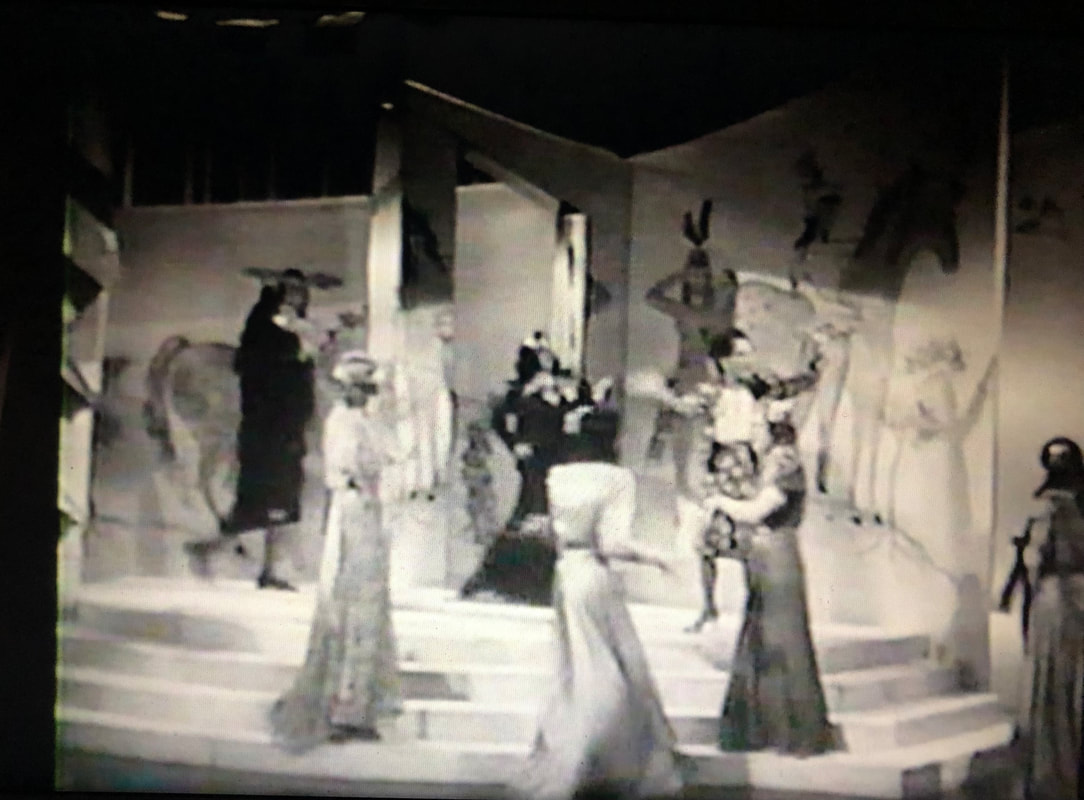
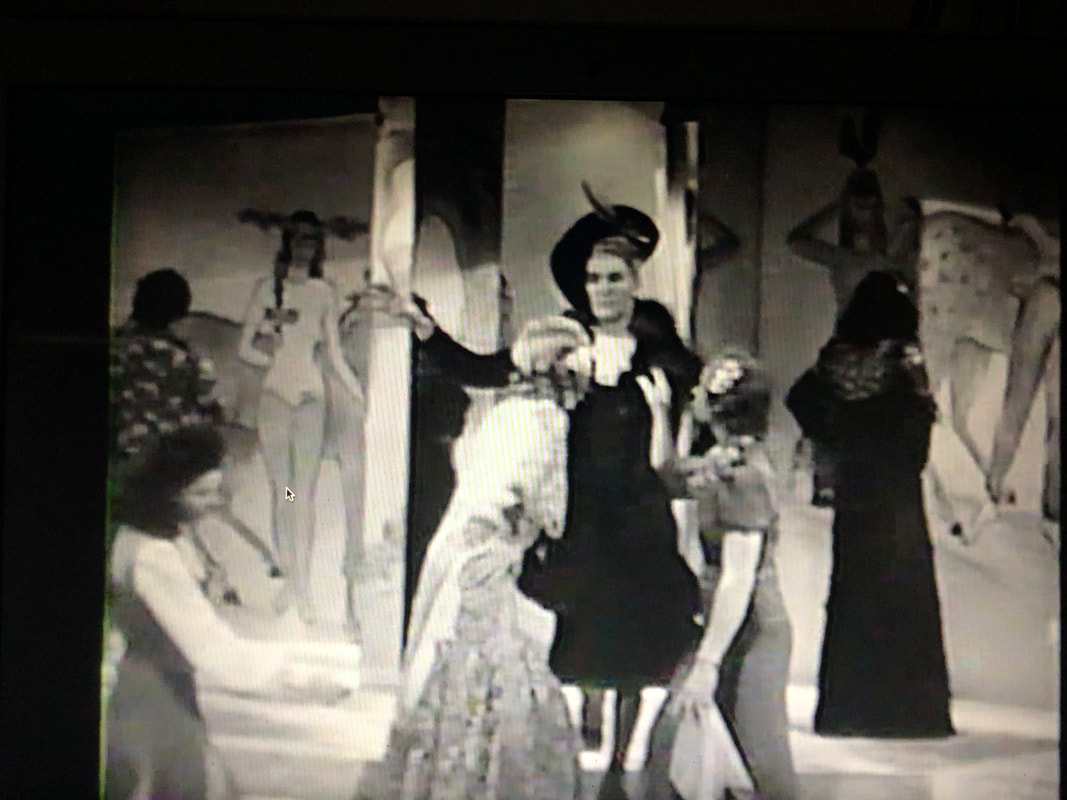
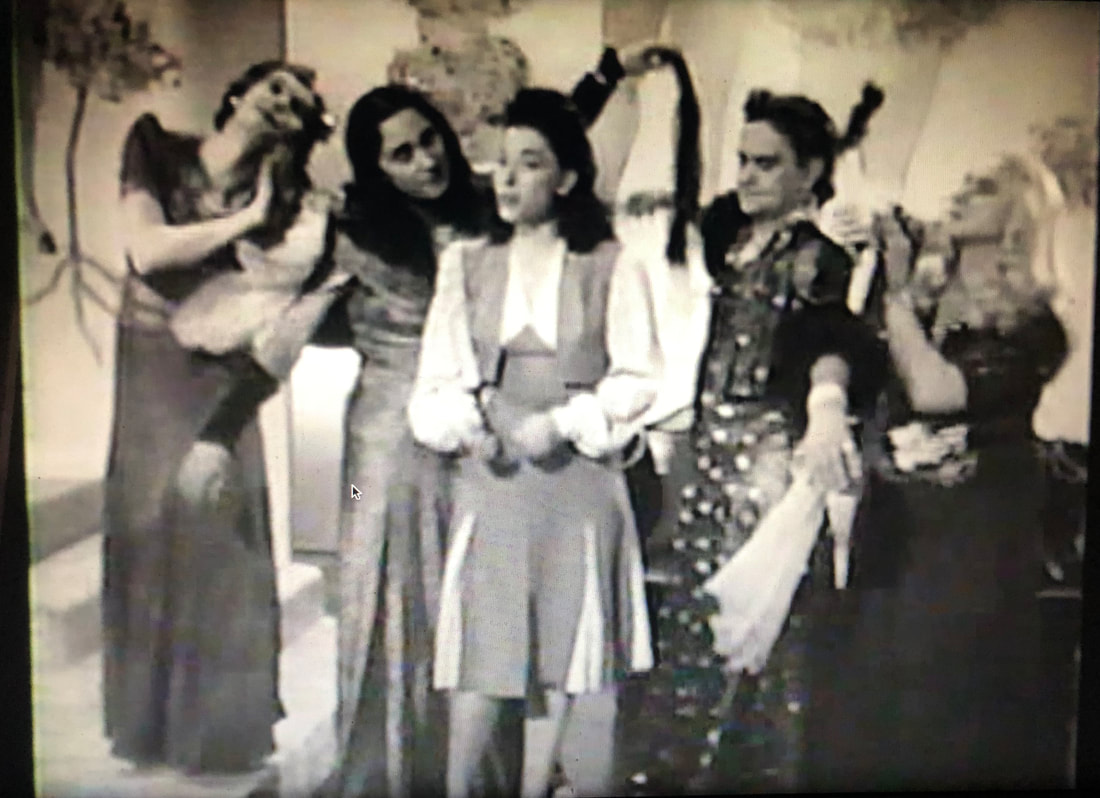
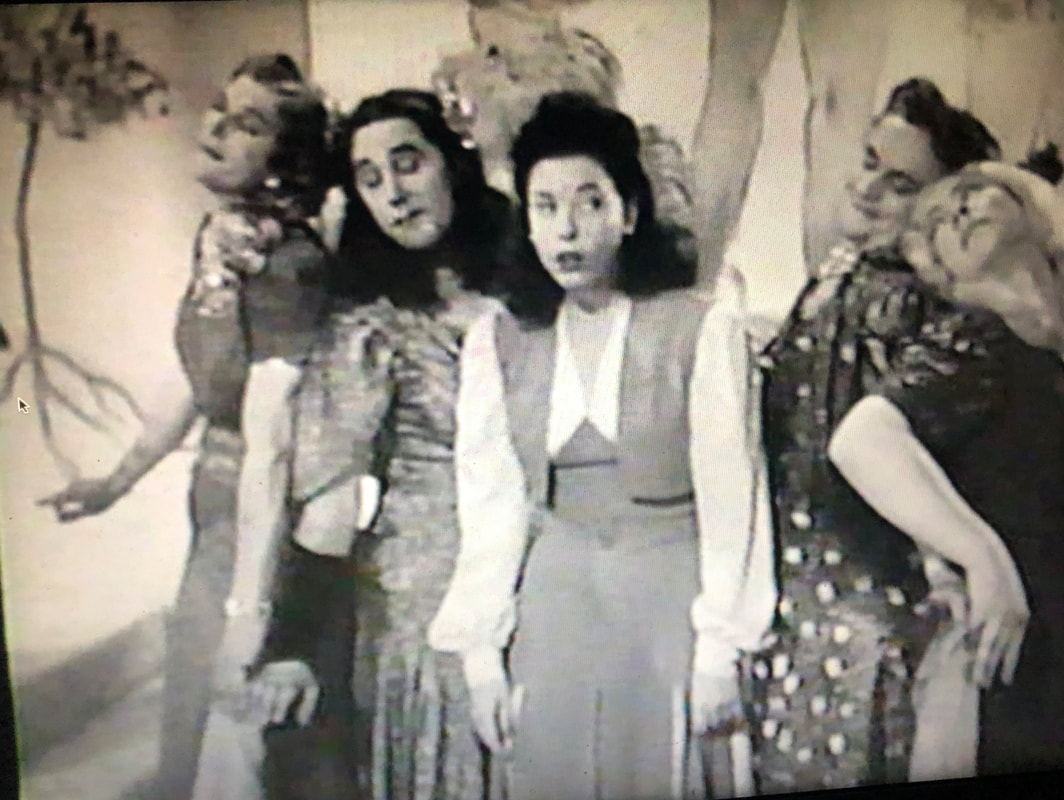
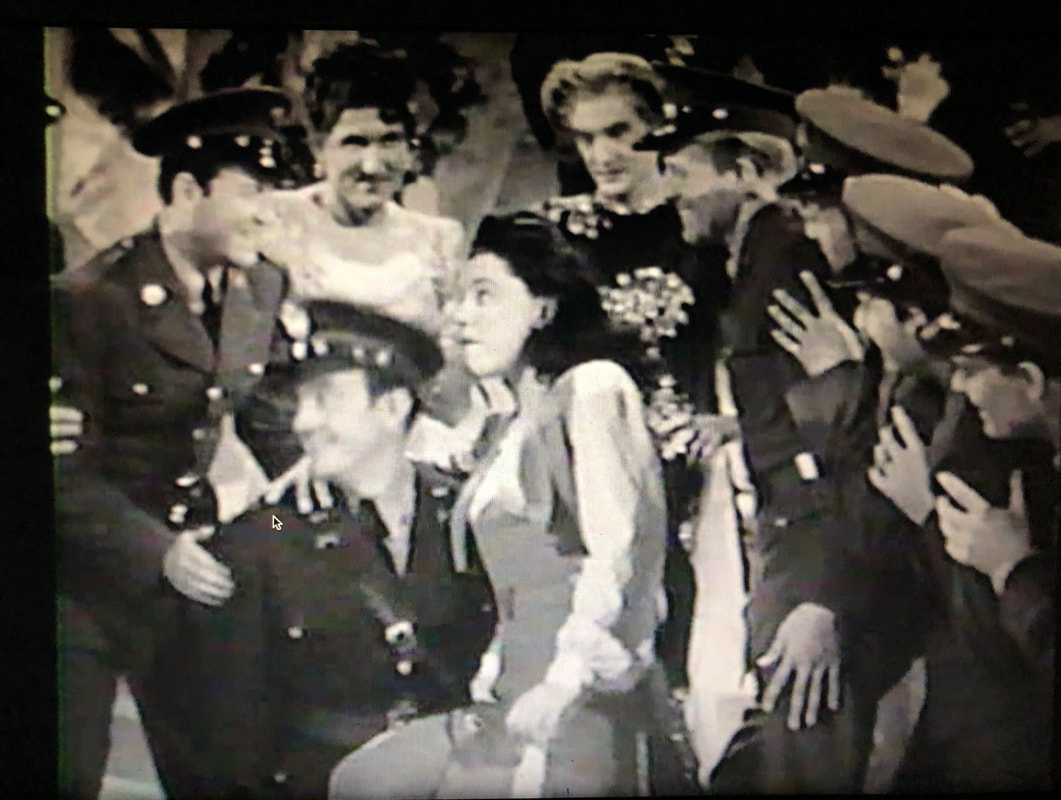
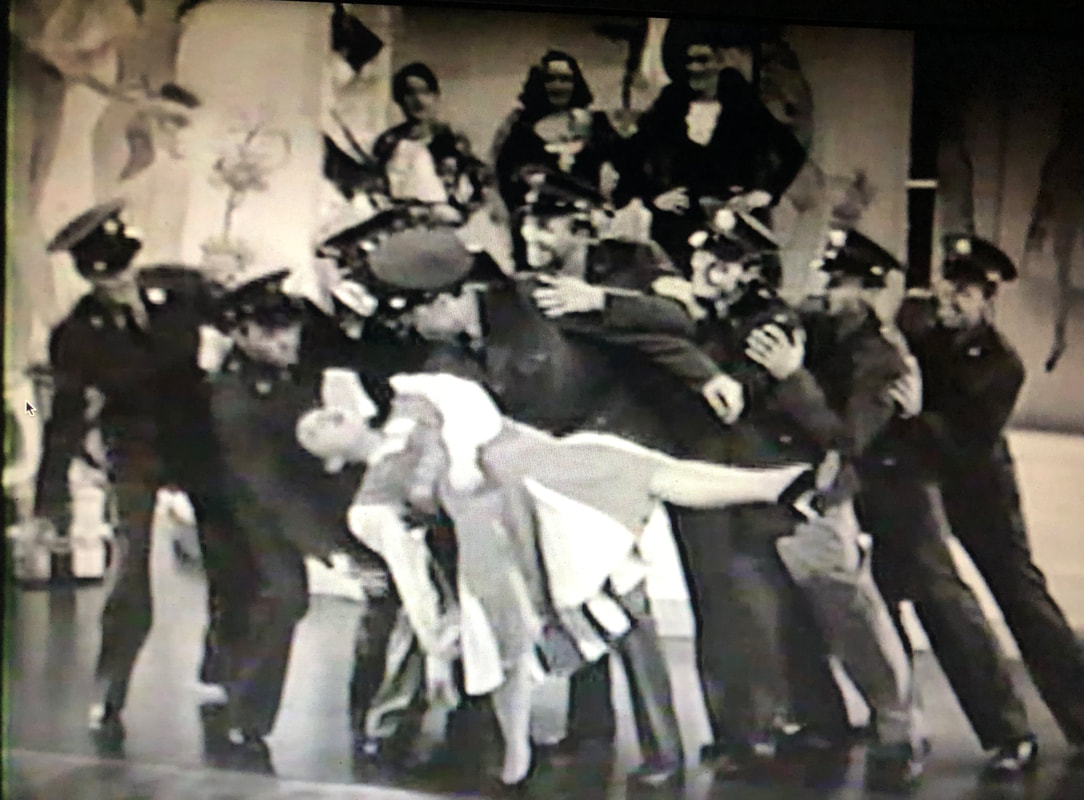
 RSS Feed
RSS Feed